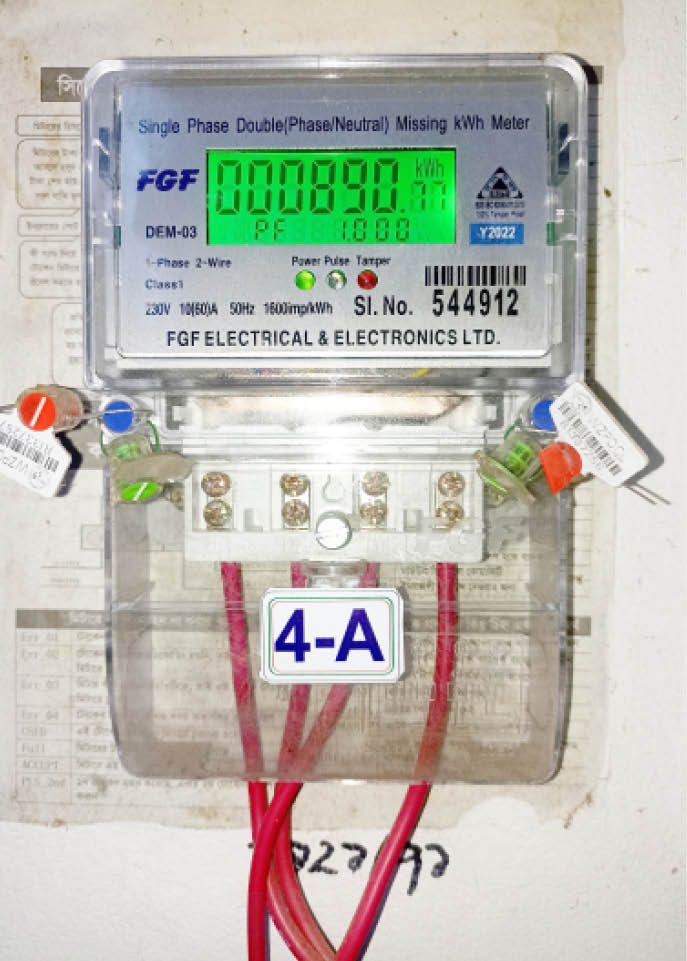Make meters available
The Nigerian Electricity Regulatory Commission (NERC) has announced the approval of a 40% increase in the price of single-phase prepaid meters from the previous N58,661.69 to N81,975.16. In the same vein, the price of three-phase smart prepaid meters rose by 31% from N109,684.36 to N143,836.10. This is even as Nigerians continue to encounter difficulty accessing […]

Why electricity meters will go dark if not upgraded
The Nigerian Electricity Regulatory Commission (NERC) has announced the approval of a 40% increase in the price of single-phase prepaid meters from the previous N58,661.69 to N81,975.16. In the same vein, the price of three-phase smart prepaid meters rose by 31% from N109,684.36 to N143,836.10. This is even as Nigerians continue to encounter difficulty accessing meters.
The review, under the Meter Asset Provider (MAP) and National Mass Metering Regulations (NMMR), was jointly signed by NERC Chairman, Sanusi Garba, and Commissioner, Legal, Licensing and Compliance, Dafe Akpeneye.
Claiming that the new prices will ensure fair and reasonable pricing of the meter to both MAPs and end-use customers, NERC added that it would ensure MAPs recover reasonable costs associated with procurement and maintenance while allowing for viable return on investment.
Stating that the increase took effect from September 6, 2023, the NERC emphasised it would remain in force until amended or revoked by subsequent orders by the commission.
3 nabbed over theft of meters in Ondo
AFN plans U-13 tournaments in three centres
It is indeed surprising that the NERC hiked the price of a product that is not available. This is in addition to the timing, which we feel is not conducive due to the hardship Nigerians are facing following the fuel subsidy removal and other economic policies recently introduced. We, therefore, call on NERC to revert to the old price and work hard to ensure availability of the meters. The pre-paid meters are scarce and when available, are sold at black market rates. Yet, these meters are supposed to be readily available for every home. It beats imagination that Nigerians are facing this ding dong over prepaid meters, which were introduced in 2006 by the then Power Holding Company of Nigeria (PHCN) to abolish meter reading and estimated billing for customers, thereby aiding revenue collection and generation. Sadly, even the privatisation of the DisCos failed to improve the metering situation. Consumers are daily, receiving excuses from the regulator and power network operators. This is despite several deadlines given by the past administration to ensure that all consumers are metered.
The result is that as NOI Polls revealed in the May 2023 report, ownership of fixed pre-paid metering is limited to only 37% of electricity customers. The rest are divided among those who use post-paid meters and those who do not have meters, but simply pay fixed amounts of money for electricity.
And various federal government initiatives have failed to bring succor. For example, the National Mass Metering Programme (NMMP) was launched in 2020 by the federal government to increase Nigeria’s metering rate, eliminate arbitrary estimated billing and strengthen the local meter value chain by increasing local meter manufacturing.
Under the NMMP propelled with Central Bank of Nigeria (CBN) financing support to the DisCos (Downstream) and local meter manufacturers (Upstream), procurement of fully assembled meters from overseas is prohibited except meters imported by Meter Asset Providers (MAP) already in the country as at September 30, 2020 and verified by NERC.
This led to the introduction of Service-Based Tariff (SBT) in the Nigeria Electricity Supply Industry (NESI) effective from 1st September 2020 with increased emphasis on the need to close the metering gap in the NESI. The gap is huge as analysis provided by NERC shows that unmetered customers as well as those with obsolete meters that need to be replaced currently stand at over 10 million, based on recent customer enumeration data.
Despite all these, NMMP has suffered setbacks, leaving millions of electricity customers stuck with “crazy bills’ from DisCos.
The Meter Manufacturers and Assemblers Association of Nigeria (MMAAN), which claims commensurate manufacturing capacity of 4.9 million meters per year, has urged increased intervention in the sector to enhance production.
Daily Trust believes it is time for NERC, CBN and TCN to work in tandem to resolve all issues militating against the smooth operations of NMMP and MAP and make prepaid meters available in homes that need them. The power sector cannot be developed if the issue of meters is not addressed. All stakeholders must look into this issue with a view to addressing it once and for all. It is very discouraging that consumers struggle so hard to have the meters. Even the alleged corruption in the system will be minimised if all homes are metered as it will take care of the issue of payment for electricity.
What we expect operators to do at this point is to concentrate on making the meters available instead of hiking costs, which could make customers shun procurement of the meters and become a disincentive to promoting its penetration. Ensuring all homes and offices are metered is the way to go and all hands must be on deck to fast track the process. Towards this, NERC should rise up to its mandate.
